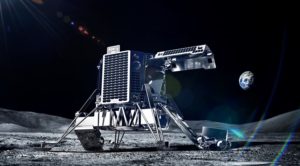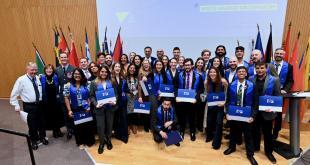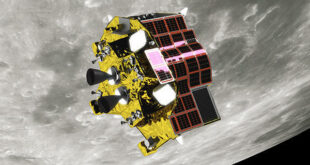
NGK SPARK PLUG CO., LTD., a manufacturer with over 80 years of experience in spark plugs and ceramics, headquartered in Nagoya, Japan, and lunar exploration company, iSpace Inc., have announced that NGK SPARK PLUG has agreed to participate as a Corporate Partner of the world’s first commercial lunar exploration program “HAKUTO – R”.
NGK SPARK PLUG and HAKUTO-R have also agreed to transport a trial design of NGK SPARK PLUG’s solid-state battery technology to the Moon in 2021. Through this technological cooperation, the two organizations will conduct the world’s first test of solid-state battery technology on the Moon.
Testing solid-state battery technology on the Moon is aimed at supplying the burgeoning lunar industry with a stable energy storage solution. However, in order to conduct sustained lunar exploration, energy storage technology must be capable of withstanding extremely cold temperatures on the Moon, such as during the lunar night and in the permanently shadowed regions at the Moon’s poles.
Today’s lithium-ion batteries consist of liquid electrolytes, which are not suitable for lunar conditions. As the Moon’s poles can reach -150 °C (approx. -240 °F) in temperature, the liquid would freeze, which would cause the expansion of volume and risk of damaging the internal structure of the battery. Therefore, a stable power supply in space and on the Moon is critical for exploration and further development.
The current solution to keep electrolyte batteries above freezing temperatures has been to attach an electrical generator which generates heat using sources such as radioactive isotope which can be hazardous. In comparison, solid-state battery technology uses a solid material as an electrolyte, such as ceramic, and avoids the issue of freezing liquid. Further, the technology is expected to produce safer, more compact batteries compared with conventional lithium ion batteries.
Currently, solid-state battery technology is still an emerging technology, not yet on the market for practical use, and there are several types under development. NGK SPARK PLUG has been pursuing research and development on “oxide-based ceramic electrolyte” battery technology with a focus on providing a wider operating temperature range and higher safety than other types. The choice of oxide eliminates the risk of combustion or hazardous gas leakage, and the company leverages its ceramics expertise in material and processing to improve the performance of its solid-state battery material.
NGK SPARK PLUG’s specialty in making their batteries small and compact is a key feature for future spacecraft to install the technology in a limited space. At the same time, NGK SPARK PLUG has developed a unique capability of non-sintering the oxide-based electrolytes, instead of the common practice of sintering (densification of oxide electrolyte using a high temperature treatment). This means NGK SPARK PLUG will be able to eventually make the batteries larger for multiple applications.
Shinichi Odo, President and CEO, NGK SPARK PLUG: “We are very excited to participate as a corporate partner and a payload provider for HAKUTO-R’s challenge to embody our corporate message “IGNITE YOUR SPIRIT”. We will seek the possibilities of all-solid-state batteries and contribute to space development.”
Takeshi Hakamada, Founder and CEO, ispace: “Stable power supply will be the most critical component to enable industry to take to the Moon. Ultimately, this means NGK SPARK PLUG’s contributions will facilitate the expansion of human presence into outer space.”





